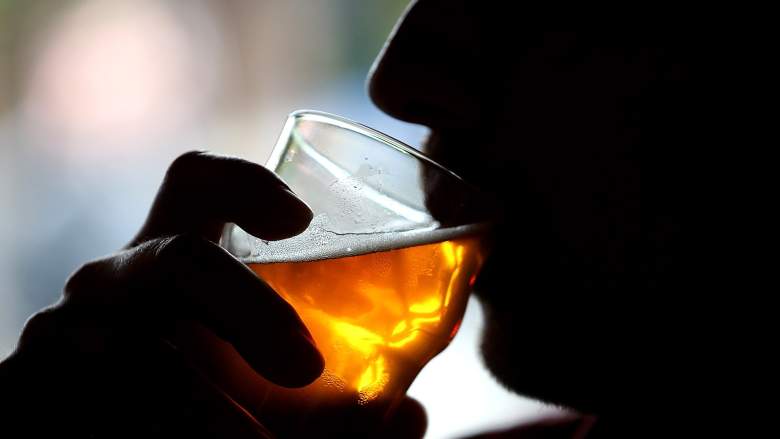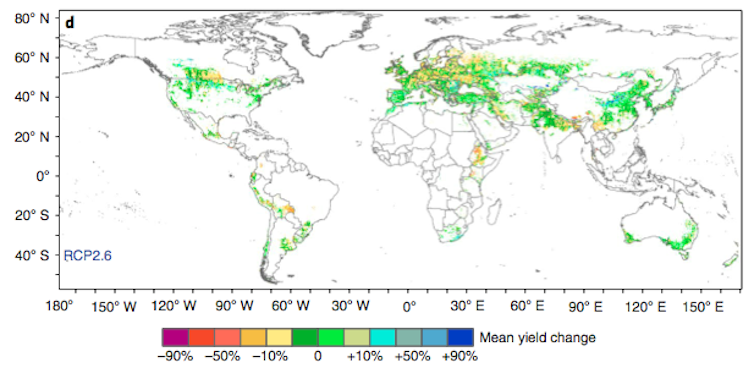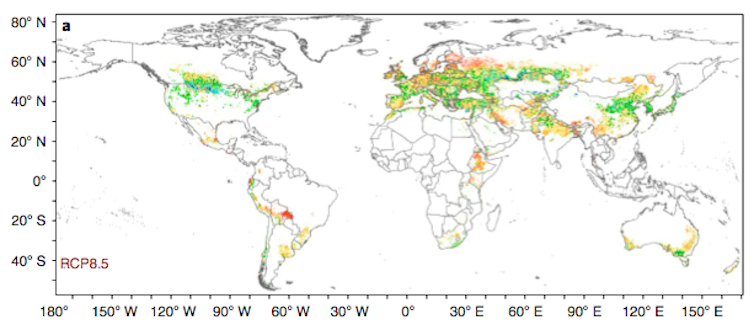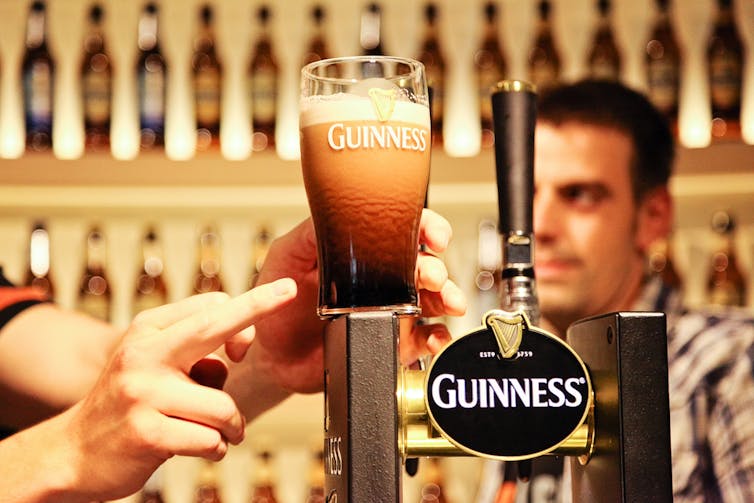
Getty
The price of beer could double under unchecked climate change, as droughts and extreme temperatures cause barley yields to drop. That’s one conclusion of research we recently published in Nature Plants.
We first became curious about barley, and the beer it produces, as this relatively minor crop was clearly affected by climate extremes yet had never caught the attention of climate scientists. And, unlike many other food crops, barley grown for beer is required to meet very specific quality parameters. Malted barley gives beer much of its flavour, yet if it is too hot or there isn’t enough water during critical growing stages, the malt cannot be extracted.
This is why we gathered a team of scientists based in China, the UK and the US to assess what extreme drought and heat events may mean for beer supplies and prices. We were interested specifically in what would happen to barley when there was both extreme drought and heat during the growing season, something that will become more common thanks to global warming. We then modelled what this would mean for barley yields in 34 world regions which either produce or drink a lot of beer.
In more optimistic scenarios, where emissions are brought under control and warming is kept at a manageable level (what climate scientists refer to as RCP2.6), droughts and heatwaves might occur together in about 4% of the years. In the worst case scenario, where emissions and temperatures keep increasing, such extremes might occur in 31% of the years.
These are global average results, however, which can hide significant regional variation. In affected years, barley yields would drop the most in tropical areas of Central and South America, and in Central Africa, for instance. In the same years, yields in temperate Europe would decrease moderately, or even increase in parts of the US or Russia.

Xie et al/Nature Plants
But the overall trend is clear: at a global level, barley yields will at best – under the optimistic scenario – decrease by 3%. And in the worst case scenario, yields will fall 17%.

Xie et al/Nature Plants
From barley to beer
We know that climate change will mean less barley – but what about beer? One factor to consider is that barley is mostly used to feed livestock, and beer is ultimately more dispensable than meat. This means declining yields will hit beer production extra hard.
Ultimately, our modelling suggests that during the most severe climate events, the price of beer would double and global consumption would decline by 16%, or 29 billion litres. That is roughly equal to the total annual beer consumption of the US. Even under the optimistic scenario of less extreme climate change, beer consumption would still drop by 4%.
Again, price and consumption changes would vary widely from country to country, with the greatest price increases being concentrated in relatively affluent and historically beer-loving countries. In Ireland, for example, the price of a beer bottle would double under extreme climate change. In less wealthy countries, people would simply drink less beer under those circumstances. We predict a 32% drop in Argentina, for example.

PHTGRPHER_EVERYDAY/Shutterstock
It is possible that more drought- or heat-tolerant barley cultivars may be developed in future, which would reduce the risk of climate change to supplies of beer. But these and other technological developments, or increases in stockpiling (or even prioritising beer over livestock), were beyond the scope of our study.
While previous research has looked in detail at what climate change means for essentials like wheat or rice, less attention has been paid to so-called “luxury goods”. In our study, we took beer as one such example, to highlight the ways climate change will affect our lives.
We hope our results might attract further attention from various beer-lovers who actually have the power to do something about global warming. Seeing that climate change is affecting our lives in more ways than we imagined before, they might start to think about further strengthening global efforts to reduce emissions.![]()
By Tariq Ali, Postdoctoral Research Fellow, China Centre for Agricultural Policy, Peking University; Dabo Guan, Professor in Climate Change Economics, University of East Anglia, and Wei Xei, Assistant Professor, China Centre for Agricultural Policy, Peking University
This article is republished from The Conversation under a Creative Commons license. Read the original article.